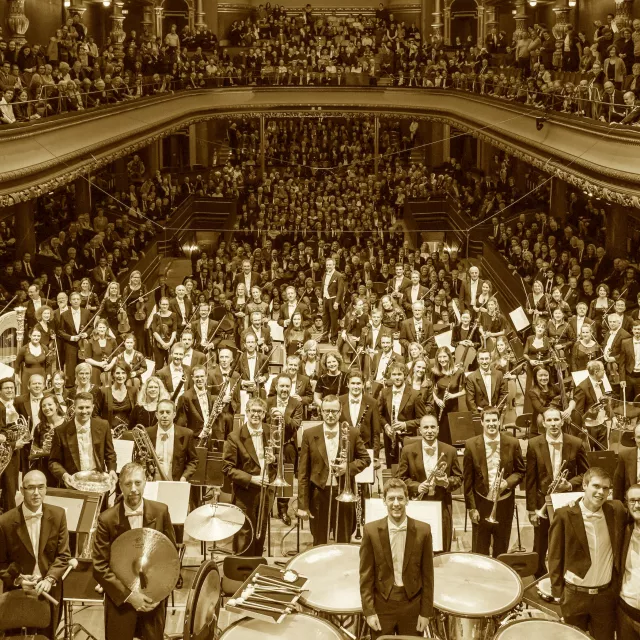May I return once more to the question of video selection? Who reviews these videos, and how? How do you ensure that someone like Gustavo Dudamel – who, back in 2004, had conducted only youth orchestras in Venezuela and almost certainly had no means to produce a high-quality video – still stood a fair chance of being selected?
I think it is a combination of objective judgement and instinct or intuition shaped by layers of experience. You can recognise great qualities even in a poor recording. Musical shaping, body language, eyes, energy – all of this shows what the person might be capable of.
There are five people involved in the pre-selection process. First, everyone watches alone; then we come together and discuss. There are men and women on the panel, not only conductors and conducting teachers but also our intendant, Marcus Axt, and a member of the orchestra. We go through several rounds of viewing and try to keep the process gradual and thoughtful in order to achieve the best possible result.
In a sense, discussion is a trademark of the Mahler Competition. Where others forbid the jury to talk about the candidates, in Bamberg every decision is the outcome of thorough debate. How do you select and manage such a large jury in order to reach consensus every time?
A good question. I have twice served as president of the jury. At the beginning I was not very interested in the position; I wanted to learn and experience the competition properly for myself before being given the chair. But I must say – the spirit in Bamberg, the discussions within the panel – it was extraordinary from the outset. And I realised I was quite at home in this further leadership role. It was constructive, harmonious, respectful, but also very natural and often down-to-earth.
What is the most important quality in a conductor? Inspiration – the ability to inspire, to bring about a genuine change in the orchestra’s playing. The conductor must lead the group away from routine. Of course, a jury has to differentiate, analyse details, award points – that is part of the job too. But if a conductor cannot inspire, cannot move you – not only the audience but also the jury – what, in the end, is there to discuss?
Besides the monetary awards, what does the Mahler Competition offer its laureates?
Our aim is that the entire classical music world should take note of our candidates. Then it is fascinating to see what kind of relationship the winners are able to establish with the orchestra – and with other orchestras. The award winners are all invited back at least once, and some remain very close to the musicians, while others do not. Some return often; others never manage to come back at all. There are cases where conductors seemed very promising during the competition but could not meet expectations when they returned. This, however, is perfectly normal in our profession: working with an orchestra for the second time is much more difficult than the first. The novelty has worn off, the pressure is higher, and you must prove yourself to an orchestra that is much more critical than before.
These aspects, too, must be considered by the panel. After all, the life of a conductor is far from being only about conducting. It is a leadership role – and as complex as life itself. I am glad that in Bamberg we have the resources and the time to incorporate all these important dimensions into the way we shape the programme and form our considered judgements.
The next Mahler Competition will take place in Bamberg, Germany, from 23 June to 3 July 2026. For more information please click here
©WFIMC 2025/FR





